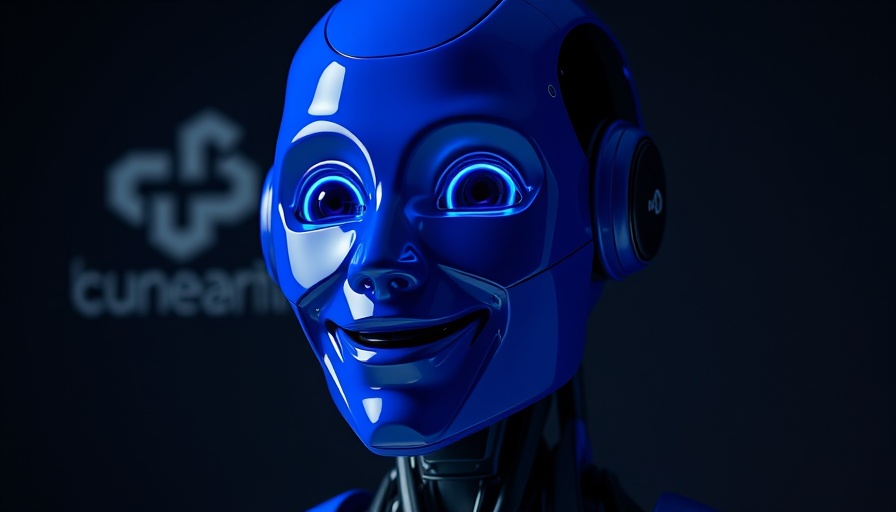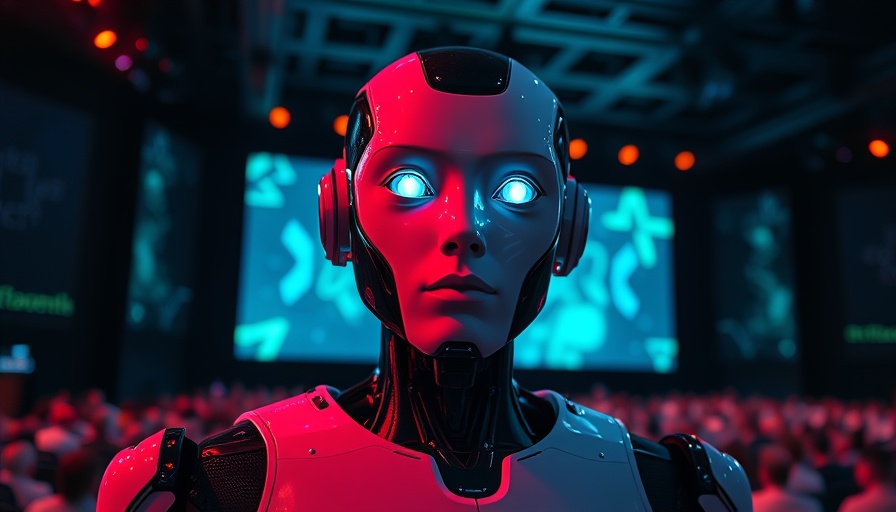
The Rise of Adaptive Humanoids: A New Era in Robotics
The recent updates to Engineered Arts' Ameca robot signal a transformative moment in robotics, illustrating how advanced technologies can redefine roles across industries. Ameca can swiftly morph its entire identity—from name to voice and personality—tailoring its skills to meet specific demands through a remarkably user-friendly browser interface. Bypassing traditional programming hurdles, users can now drag and drop their desired traits for the robot, enabling it to function seamlessly as anything from a customer service agent to a paint salesperson in mere seconds. This capability highlights an exciting shift towards making humanoid robots practical assets rather than just impressive gimmicks.
In "Upgraded AMECA is SHOCKINGLY Real: Turns Into Anyone You Want in Seconds," the discussion dives into the rapid evolution of humanoid robots, exploring key insights that sparked deeper analysis on our end.
The Need for Efficiency in Industrial Environments
As industries across the globe grapple with labor shortages and the need for enhanced efficiency, robots like UBTech's Walker S2 are stepping in with innovative solutions. This robot’s ability to autonomously change its battery means it can operate continuously without human intervention, a game-changer for manufacturing sites. With a focus on maintaining productivity during non-stop operations, the Walker S2 is poised to transform how factories function, thanks to its smart energy management system that optimizes performance based on task urgency. By introducing standardized battery platforms across fleets, scaling these robots to multiple production environments can happen without unnecessary complexity.
Shifting Paradigms in Humanoid Robotics
The evolving landscape of humanoid robotics isn’t limited to Engineered Arts and UBTech. Companies like Leu Robotics are also making impressive strides, focusing on creating adaptable robots for various industrial applications. Their dual-track strategy emphasizes both research and development while establishing a robust industrial service ecosystem. This could offer considerable advantages to sectors like healthcare and education as robots gain the flexibility to perform specific tasks tailored to each environment, augmenting the human workforce rather than replacing it. For Michigan's tech startups in the robotics sector, such advances can pave the way for innovation across multiple fields and attract local venture funding.
The Implications of AI Integration in Robotics
Integrated AI capabilities enhance the functionality of humanoid robots, allowing them to adapt and learn from their environment in real-time. The potential for these robots to execute dangerous tasks, such as high-heat welding, in shipbuilding, showcases their expanding role in addressing workforce gaps in hazardous settings. Hyundai’s collaboration with Neura Robotics signifies a significant investment in developing resilient and intelligent machines, indicating strong backing from major players in the tech landscape. This trend may lead the Detroit tech scene to focus more on robotics technology, which is often overlooked compared to software and IT advancements.
Strategies for Michigan's Tech Innovators
Michigan's tech founders, professionals, and investors stand at a crucial juncture. With initiatives like Outskill providing free training in AI and automation, there's an incredible opportunity for entrepreneurs to upscale their knowledge and drive innovation in AI robotics. Investing in educational programs and bootcamps could equip the workforce with necessary skills, preparing them for future automation waves. Moreover, collaboration within Michigan's innovation hubs can foster the exchange of insights and strategies, propelling growth in emerging technologies like robotics, AI, and IoT.
Addressing Challenges and Embracing the Future
While the advancements in humanoid robotics are promising, they also pose questions about job displacement and the ethical implications of employing robots in critical roles. As industries seek to embrace this technology, dialogue surrounding responsible AI usage and workforce adaptation is essential. Engaging policymakers, industry leaders, and community members will be vital to ensure a balanced transition that maximizes benefits while addressing potential risks.
In summary, the rise of adaptive humanoids like the Ameca, Walker S2, and others illustrates a significant leap toward practical robotics that can transform various sectors. Michigan's tech ecosystem is well-placed to harness these developments, provided that stakeholders collaborate closely to foster innovation, education, and responsible integration of these sophisticated machines.
 Add Row
Add Row  Add
Add 



Write A Comment